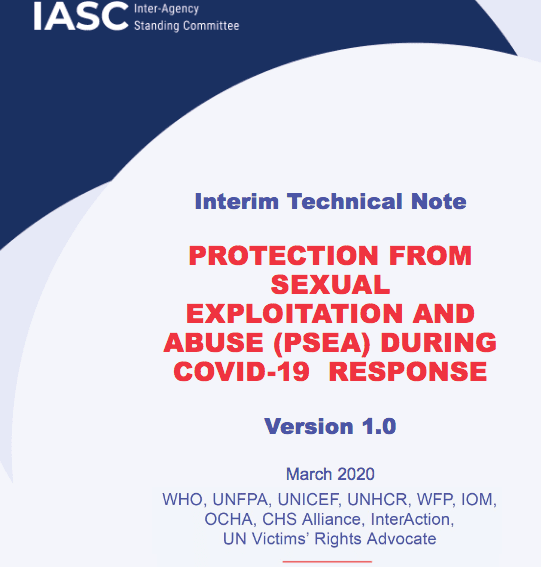
Protection From Sexual Exploitation And Abuse During Covid-19 Response
The COVID-19 Pandemic is a public health, social and economic crisis that is global in scale. With restrictions on travel and movement, civil society and humanitarian organizations play a critical role in supporting governments to respond. All people should remain safe from sexual exploitation and abuse while receiving humanitarian aid, including health services and treatment, without abuse or exploitation. If sexual exploitation or abuse does occur they should have access to safe and confidential reporting channels and services.
Protection from Sexual Exploitation and Abuse (PSEA) must be integrated into the response to COVID-19. As with any emergency, PSEA prevention and response should be a central part of coordinated humanitarian action. The crisis does not create new responsibilities; rather, PSEA actions during the COVID-19 pandemic should strengthen existing PSEA commitments to protect and assist people receiving humanitarian assistance.
INCREASED RISKS
As seen in previous public health emergencies, when the humanitarian response scales up the risk of SEA increases. Women and children in particular face heightened protection risks. The surge in new responders (including non-traditional humanitarian responders) combined with high demand and an unequal supply of food and health supplies increases risks.
Children are at particular risk of potential harm where school closures interrupt school-based services and interventions for at-risk children. Greater difficulties in accessing health services, as well as increased burdens and separation from caregivers (due to quarantines, or severe illness/death), may lead to SEA against children, in particular girls, including child/forced marriage or transactional sex.
Read the full report here.
